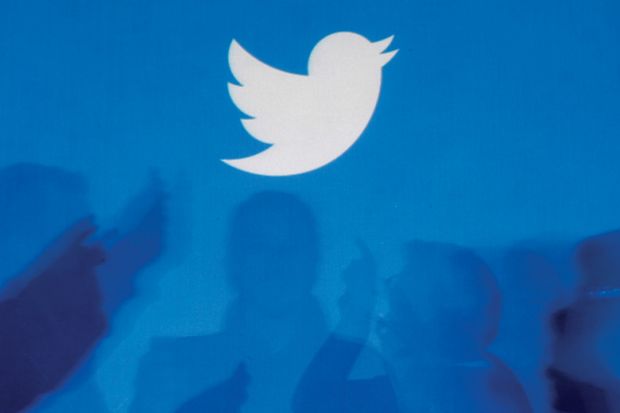Just a few weeks after Twitter co-founder Jack Dorsey sent the platform’s first tweet in March 2006, the social media network gained its first PhD student.
Indiana University computer science student Andrew Keep (@andykeep), now a software engineer at Cisco, is listed among the first 100 people to have signed up to the fledgling site, which now has 320 million monthly users.
Dr Keep is still an occasional tweeter, broadcasting his thoughts on everything from home baking and everyday irritations to computer coding formulas, much like the hundreds of thousands of PhD students to have embraced the medium since then.
But some advocates of Twitter, which celebrates its 10th anniversary on 21 March, believe its influence on PhD candidates has been more profound than just providing a way for them to let off steam or catch up with friends. For many, Twitter has transformed the PhD experience altogether, they claim.
“I found my PhD supervisor on Twitter,” explains Donna Peach (@Donna_Peach), now a lecturer in social work at the University of Salford, who runs @PhDForum, one of the world’s largest PhD-related groups with about 26,500 followers.
Ms Peach, a social worker with 30 years’ experience, began the group in June 2012 at the start of her PhD in psychology at the University of Huddersfield, as well as a related Facebook page, which now has around 30,000 members.
“Doing a PhD can be a very isolating experience, which is why Twitter is so valuable,” said Ms Peach, whose followers often share the frustrations, hardships and happier moments of their doctoral study via hashtags such as #phdweekend and #shutupandwrite.
“There are a lot of part-time PhD students who have to use their weekends to work on their PhD, so it’s nice to know other people are out there making these sacrifices,” she added.
While PhD Forum has more followers on Facebook, she prefers its Twitter group owing to the lack of spam, which makes it easier to use. Ms Peach often chairs discussions and networking workshops for certain subject areas, part of Salford’s efforts to support and engage with early career researchers.
“It’s easier for PhD students because they can just tune into what they’re interested in,” she said of Twitter’s search functions.
With so many early career academics on Twitter, the site has transformed the way researchers interact, not just online but also when they meet in person, Ms Peach claimed.
“People will contact each other on Twitter before a conference, saying we should meet up and share information on a certain subject,” she said.
Twitter has also helped researchers in difficult-to-research fields, such as sex workers or child abuse, to connect with each other and start collaborations, said Ms Peach, whose own research has focused on these topics.
It has also allowed more junior researchers to build a profile and increase the visibility of their research, she added.
“You can schedule tweets to appear while you are talking at a conference, so you can almost literally be in two places at the same time,” she said.
Academia’s biggest Twitter users
- @PhDForum has tweeted 18,500 times since it began in June 2012 – around 277,500 words, given an average tweet contains 15 words, but there are far more avid Twitter users in higher education:
- Carl Lygo (@carllygo), vice-chancellor of BPP University, joined in March 2009 and has tweeted 37,500 times (estimated 562,500 words – almost 100,000 more than J. R. R. Tolkien’s Lord of the Rings trilogy)
- Dominic Shellard (@DMUVC), vice-chancellor of De Montfort University, who joined in June 2010, has tweeted 39,500 times (592,500 words – around 5,200 words longer than Leo Tolstoy’s epic novel War and Peace)
- David Colquhoun (@david_colquhoun), pharmacologist and blogger, who joined in January 2009, has tweeted 58,200 times (873,000 words – equivalent to the first six of J. K. Rowling’s Harry Potter novels)
- Anna Notaro (@notanna1), senior lecturer in contemporary media theory at University of Dundee, joined in May 2011 and has tweeted 123,000 times (1,845,000 words – 10,000 words more than George R. R. Martin’s five Game of Thrones novels)
- Not forgetting Times Higher Education (@timeshighered), which joined in March 2009 and has tweeted 46,000 times (690,000 words – almost the same length as the King James Bible).
Figures correct to nearest 100, as of 10 March 2016.
POSTSCRIPT:
Print headline: Has Twitter transformed the #PhD experience?
Register to continue
Why register?
- Registration is free and only takes a moment
- Once registered, you can read 3 articles a month
- Sign up for our newsletter
Subscribe
Or subscribe for unlimited access to:
- Unlimited access to news, views, insights & reviews
- Digital editions
- Digital access to THE’s university and college rankings analysis
Already registered or a current subscriber? Login







